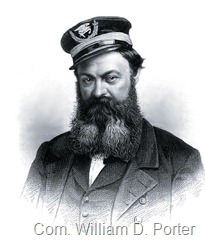July 24.—The steamer Tubal Cain was seized as a prize by the United States gunboat Octarora this day, having on board a cargo of small arms, salt, saltpetre, military buttons, shells and various other goods suitable for a Southern market.—The schooner Emma was captured by the United States steamer Adirondack, commander Gansevoort.—Skirmishes took place at Malvern Hill, Va., and Coldwater, Miss.
— At St. Louis, Mo., the Union Merchants’ Exchange unanimously adopted a stirring and patriotic address to the people of Missouri. Unfaltering and unconditional fidelity to the Union was the sentiment, and liberal aid to the volunteer fund was pledged. — The City Council of Philadelphia appropriated five hundred thousand dollars for the payment of bounty of fifty dollars to each volunteer to supply the quota for the city under the recent call of the President
—A skirmish took place at Trinity, near Decatur, Ala., between a small party of Union troops under the command of Captain Harman, Thirty-first Ohio, and a much superior force of rebels, resulting in the retreat of the latter with a loss of ten or twelve killed and thirty wounded.— (Doc. 157.)
—In consequence of the fear entertained by the Irish and other foreign residents of St. Louis of being forced into the militia service of the State, General Schofield issued an order informing them that the subjects of foreign powers, lawfully pursuing their avocations, were exempt from such service.—The Union forces stationed at Grand Junction, Miss., were withdrawn from that place to Bolivar, Tenn. All the public property and cotton were removed prior to the withdrawal
— Lieutenant-Colonel W. C. Starr, Ninth Virginia infantry, and about eighty of his command were surprised and captured at Summcrville, Va., by a superior force of rebel cavalry under the command of Major Bailey.
—Large and enthusiastic meetings were this day held at Pittsburgh, Pa., Oswego, N.Y., Stamford and Middletown, Conn., to promote enlistments into the army under the call of President Lincoln for additional troops. At the meeting at Stamford two thousand five hundred dollars were collected for the families of volunteers, and in that of Oswego resolutions were unanimously adopted in favor of a more vigorous prosecution of the war; the confiscation of rebel property; the employment of the slaves of fugitive and rebel masters in the military and naval forces of the Union, and pledging united and determined resistance against foreign intervention in the affairs of America. The Board of Supervisors added fifty dollars to the bounty of each recruit, and a number were obtained on the spot
—A company of rebel cavalry entered Gloucester Point, Va., and captured a number of contraband negroes accumulated there; set fire to a lot of ship-timber, and impressed into the rebel army nearly every man capable of bearing arms. Parties of rebel cavalry were to be seen in the vicinities of Gloucester Point and Williamsburgh in quest of plunder, and impressing into the rebel service every man who could be of any use to them.
— The Union fleet of gunboats under the command of Commodore Farragut, embarked the Union army under General Williams at Vicksburgh, and proceeded down the Mississippi to Baton Rouge, La. The flotilla of mortar vessels, under command of Commodore Davis, left its position before Vicksburgh, and proceeded up the Mississippi to the mouth of the Yazoo River, where it came to anchor.
William D. Porter (10 March 1808 – 1 May 1864) was a flag officer of the United States Navy. He was the son of Commodore David Porter (1780–1843) and brother of Admiral David Dixon Porter (1813–1891) as well as foster brother of Admiral David Farragut (1801–1870). (Wikipedia)



